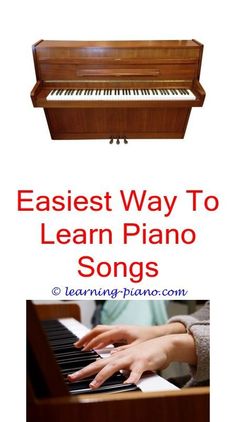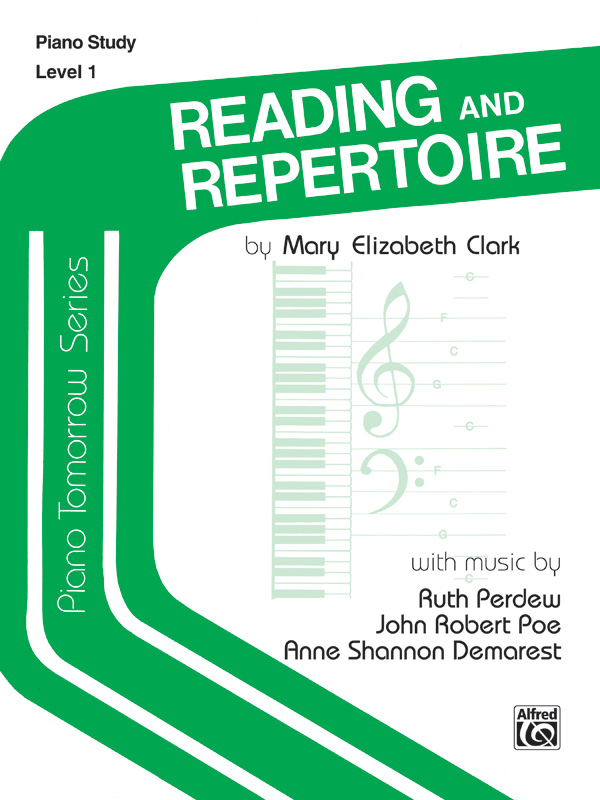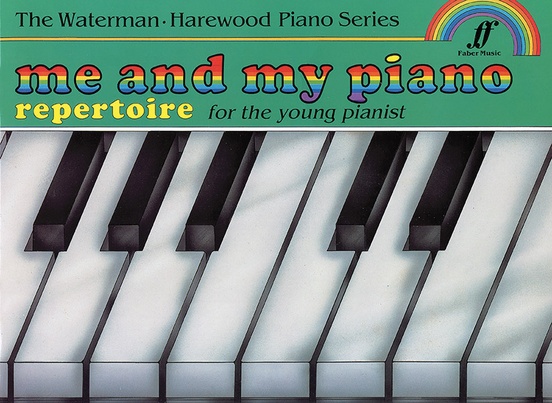
Some studetns get rather excited that the reading is simple, and rush ahead without following the precise movement insrtuctions, but at least they feel good about playing something 'easy'. You can approach this one hand at a time form level 1 and careful teaching of technique makes this book very valuable imo.

If they are playing around trying to work out a tune, I try to help them - but I try to encourage them to figure as much out first as possible so they develop aural skills. However, I try to respond to the inclinations of my students. I introduce more classical repertoire towards the end of 3B.

I use the Faber Adventure series, and fidn there is a gap in progress once you get to level 4. I am not as familiar with Alfred, but I know level 1 is still quite enough in itself.
#Beginning piano repertoire series#
However, there are some old fashioned favourites written out - by the way, I have found I like them but they are meaningless to the kids since they didn't learn "lightly row' 30 years ago! LOL!Īnyway, the lesson series are usually pretty good at giving a sound basis for several levels. The master piano composers here are Béla Bartok, Charles Ives, György Ligeti, Olivier Messiaen, Sergei Prokofieff, Erik Satie, Arnold Schoenberg, Alexander Scriabin, and Dmitri Shostakovich.Just keep your eyes open for new pieces - I actually find that most of the kids are really happy playing the lesson books since every piece to them is making music on the piano. The 20th century brought a new degree of inventiveness to the piano repertoire, with composers experimenting, and exploring new sounds, at times taking dissonance and tension to their extremes.

Among the most prominent composers for piano we find Johannes Brahms, Frédéric Chopin, Claude Debussy, Gabriel Fauré, Franz Liszt, Felix Mendelssohn, Sergei Rachmaninov, Maurice Ravel, Franz Schubert, and Robert Schumann. The Romantic era (1820 - 1910) brings the piano into the spotlight, with piano virtuosity soaring to new heights, and solo piano concerts now coming into vogue. Bach - Carl Philipp Emanuel, Johann Christian, and Wilhelm Friedemann Bach - as well as other great masters, including Ludwig van Beethoven, Franz Joseph Haydn, and Wolfgang Amadeus Mozart. The Classical era (1750 - 1820) marks the birth of piano, and the first works specifically written for this “new” instrument. You will encounter Baroque era classical piano pieces written by: Johann Sebastian Bach, François Couperin, George Frideric Handel, Henry Purcell, Jean Phillippe Rameau, Domenico Scarlatti, and Georg Philipp Telemann. Pieces that were written in the Baroque era for harpsichord, clavichord, organ, and other keyboard instruments, are now commonly played on the piano.

The history of piano repertoire in Western classical music is generally thought of as starting before the piano was actually invented, in the Baroque era (1600 - 1750). It’s important to develop a strong sense of the history of Western classical piano music. Piano Teachers Connect believes that online classical piano students should take an active role in selecting the repertoire they learn in their piano lessons.


 0 kommentar(er)
0 kommentar(er)
